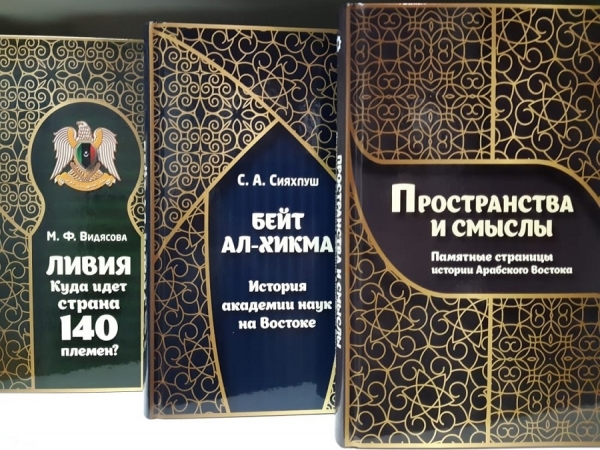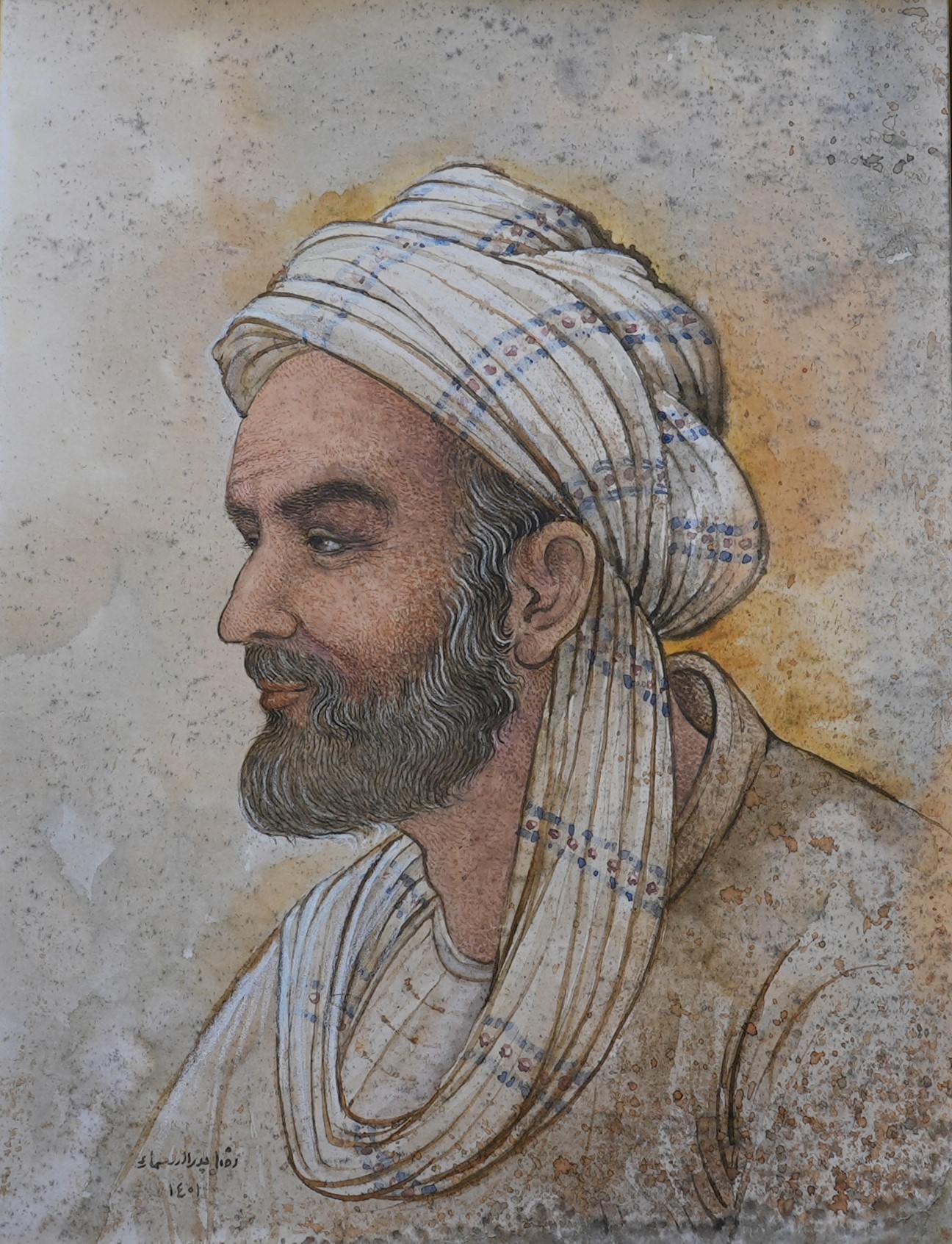The “Islamic and pre-Islamic worlds: history and politics” series has acquired three wonderful works: “Bayt Al-Hikma. The history of academy of sciences in the East” by S.A.Siyahpush; “Libya. Where is the country of 140 tribes going?” by M.F. Vidyasova and “Spaces and meanings. Memorable chapters of the Arab world history” (edited by V.A. Kuznetsov, D.E. Mishin, V.V. Orlov).
This already high-quality historical series now represents an even more valuable and important contribution to science.
“Bayt Al-Hikma. The history of academy of sciences in the East” is a book of an Iranian author, Seyed Aboutorab Siyahpush, which was translated from Persian by I.R. Gibadullin, edited by D.E.Mishin, candidate of historical sciences, and supported by the RAS Institute of Oriental Studies and the Institute of Humanities and Cultural Studies (Tehran, Iran).
The work is dedicated to the history of the House of Wisdom in Baghdad (Bayt Al-Hikma) and a number of similar institutions existing in the Muslim East that could be considered as prototypes of contemporary academies. The research presents an analysis of the social and cultural context and historical conditions of this phenomenon incorporating academic traditions of the Ancient East and the ancient world. It also examines the «translation movement», which was closely connected with the House of Wisdom, and its main representatives.
The author familiarizes the readers with the subject of translations and unique works of the House of Wisdom’s scholars, their major achievements and their contribution to the development of the Islamic civilization.
“Libya. Where is the country of 1440 tribes going?” is a work of a leading research worker of the Institute of Asian an African Studies of the Moscow State University, M.F. Vidyasova, the author of the noteworthy book “Tunisia. The route to the 21st century” (2018), which was published with the support of the Islamic Culture Research Foundation.
The book presents a concise review of the history of the ancient and contemporary Libya, its conquest by the Ottoman Empire and later by Italy. It covers different stages of the country’s existence as an independent state. The main focus is placed on the civil war, which broke out in 2011, and the role of the Western European countries in this never-ending conflict.
The book was prepared and published with the assistance of the the Institute of Asian an African Studies of the Lomonosov Moscow State University.
“Spaces and meanings. Memorable chapters of the Arab world history” is a collective monograph published under the editorship of historians V.A. Kuznetsov, D.E. Mishin, V.V. Orlov and supported by the RAS Institute of Oriental Studies.
This monograph contains a number of significant yet underexamined incidents of the centuries-long history of the Arab East. Although the monograph presents a broad overview of the Arab history during the Ancient times, Middle Ages and modern era, the author pays special attention to the issues of spaces in the Arab and Muslim history. Drawing on specific historical cases, the monograph author explains how ancient authors perceived Arabs and what we know about the structure, movements and achievements of pre-Islamic Arab tribes; how Arab writers described the lands beyond Dar al-Islam and what they thought of the foreigners who came from there; how the Arab geographic literature combined real knowledge and mythologized beliefs; how nomadic and urban spaces co-existed in the Muslim West and how the space of Andalusian mosques was structured; how social and semantic spaces of the Arab world were formed in the late Middle Ages and modern era.
The book “Spaces and meanings…” is dedicated to the 200th anniversary of the RAS Institute of Oriental Studies and was published based on the results of the Ibn Sina publishing grant contest (project No: 2018.01.10).



